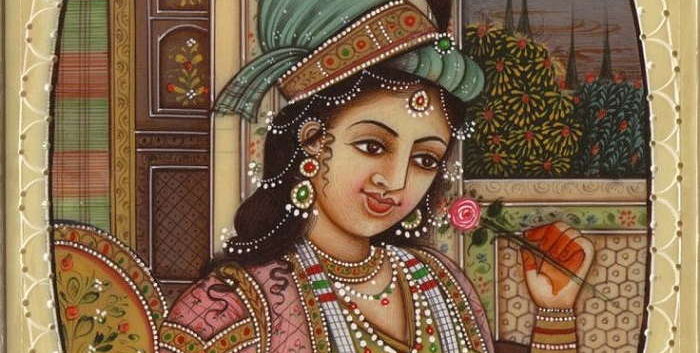By Aastha Tiwari

We live in a world that thrives off gender inequality. A woman still has to fight against all odds to survive. In such a crude world, a woman who rules is an epitome of glory and inspiration. There are several examples of women ruling a country. It’s a beautiful idea of glorifying women rulers; but it’s also disheartening that still today women who rule are not hailed to be normal but seen as an exception. There is a fine line of difference between being an inspiration and an exception. If an inspirational figure dies as an exception, she is no more inspirational. It is an inspiration when the world trembles with its impact rather than being crushed into the ground.
The name of the first and the last woman ruler who ever ruled the Delhi Sultanate – Razia Sultana has been engraved in the history for time immemorial. She succeeded her father Shamsuddin Iltutmish, who created history by choosing his daughter as a legitimate heir to the throne despite having sons. His historical decision of breaking the canon of every dynasty before he is hailed for its rationality and forward-looking approach. Never in history was a woman bestowed with the title of ‘Sultan’ because a woman never ruled. Razia sultana was a strong and bold woman who ruled with her independent mind. She is known for breaking stereotypes, for her courage and her efficiency.
Razia was trained in professional warfare and military skills in her childhood, to help her serve as a better queen and a good wife. However, little did anybody know that she would turn to be the prolific woman ruler who would threaten the male-dominated polity and society. Largely, it was her remarkable upbringing that facilitated her rise as a sultan. She was never exposed to the skewed atmosphere of the harem, the domestic, and the only world of a woman. She never imbibed the customary demure behavior of women that was expected of Muslim women, which exists even today. All these factors culminated in giving birth to a ferocious warrior in Razia sultan. She refused to adopt the title ‘sultana’ because of its feminine touch or wear ‘purdah’ rather chose for gender-neutral attire. She would mount on an elephant as the chief of her army, with her face publicly displayed. She was a strong woman who would never succumb to the dictates that were contrary to her belief.
Razia was a deviant that irked most of the conservatives in the society, inciting hate and jealousy. She ascended to the throne which anyway was an incident enough to challenge the conservatives, in addition to that she didn’t conform to the norms created by society for a woman. Her defiance of wearing the veil shocked the conservatives and was not taken kindly by the religious class. She fought legendary battles and expanded the territory. Being born in an aristocratic family, she always was a proficient administrator. Her reign couldn’t be digested by her own family, let alone be the rest of society. She had to combat endless conspiracies aimed at killing and dethroning her. Despite the conspiracy that she had to witness throughout her life, she exercised her authority with ease and confidence. She even ordered the minting of coins in her name as “PILLAR OF WOMEN, QUEEN OF THE TIMES, SULTANA RAIZA, DAUGHTER OF SHAMSUDDIN ILTUTMISH”.
The name of the legend Razia sultan is engraved in the hearts of medieval history. Born in a slave family as a girl, yet she rose as an epitome of glory and inspiration. Her defiance sparked the hate in the hearts of patriarchs, who couldn’t see a woman dictating them. This was her biggest victory. Despite such glory, she couldn’t leave behind an impactful legacy that could have changed the existing world structure. In the 21st century, we look up to RAZIA SULTANA who shines as an emblem of challenge and courage. But in her times, she couldn’t prove to be the role model for her fellow sisters. There was never again a glimpse of a woman ruling in her capacity. There was not even a slightest of change in the way a woman was brought up. The public domain remained dominated by men while women were relegated to the domestic sphere. Even if a woman claimed her desire to be a warrior, it was shrugged aside and her desires lied underneath the carpet. Razia sultana was never heard in the households as an example or a trend-setter. Her life was epitomized in the form of a path that no other woman could ever set their foot on. She was not hailed as an ordinary woman, rather an example of an extraordinary and rare woman. Girls were never conditioned into the thinking that the public domain belonged to them as much as men. Neither the rest of the society was mesmerized with the glory that Razia brought to the Delhi sultanate. They never looked at her with open eyes, embracing the idea that women do possess the required skill of being a ruler. Not a slight change was felt, despite the historic rule of the legend RAZIA SULTANA.
Razia sultana was a precedent whose legacy did not deserve to die out. However, she lived as an inspiration but died just as an exception. Today, we hear histories revolving around her life, her remarkable and liberal upbringing, her strong demeanor and talent; but, alas all these were just histories to be read and not to be repeated. We don’t hear histories of Razia being a role model for women of those times. We don’t hear histories of people looking up to Iltutmish who recreated history by equally treating his children and choosing his better-skilled daughter over sons. Her entire life, she had to fight her own battles against her close-related kin who were blindfolded by a patriarchy keen on overthrowing and killing her. Yet, her reign is not used as an example to view women capable of ruling. A woman is still strangled and caught up in the public-private dichotomy.
Like Razia sultan, Chand Bibi, Rani of Jhansi, etc. are mere epitomes of exceptions in the long list of male rulers. I never intend to deny the divine aura of this legendary woman. The fact that she is acclaimed as the first and the last woman ruler who ruled Delhi sultanate reinforces my affirmation. Due to her unique and prodigious place in history, she is a subject of many popular legends; except this subject is simply taught in theory, never put in practice. Nevertheless, she is a remarkable woman of her times whose fiery and bold avatar is still reminisced. Although the conservatives failed to boost the goddess in her, the present generation will ensure that the legacy of this great inspirational woman doesn’t fade, rather it colors the patriarchal world with its magic and aura.
It is disheartening that even today, we see unskilled sons being preferred over skilled daughters who are showered with luxurious education and all the facilities because of their gender. We still see the prevalence of lineage being succeeded by sons. We still see the prevalence of the purdah system. We still hear the voice of gender inequality. Things are very much the same. We are taught about feminist history and ideas of equality and freedom; but when we tend to challenge the inequality and cite examples of these legendary women, our voices don’t echo in the ears of those deafened with patriarchy. They have shrugged aside as mere assertions that do not ring in their deaf ears. We are generations of the 21st century and yet when a woman rises above; it’s perceived to be an extraordinary moment. It saddens me to see that we haven’t yet crossed the river of inequality and reached the shore where a woman ruling is just the new normal.
Content writer Aastha tiwari is a girl who is stating at the clouds from the window sill listening to Surjan Stevens while contemplating the metaphorical undertones coloring the cloud. Role: Content Writer.Educational Qualification: Second year Political science major.Ultimate Goal: UPSC.Biggest achievement: Being featured as the writer of the month for Feminism In India.


